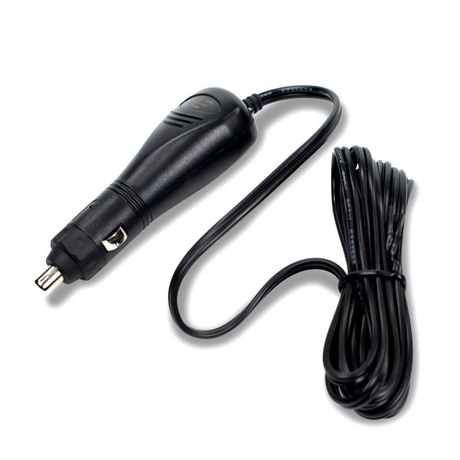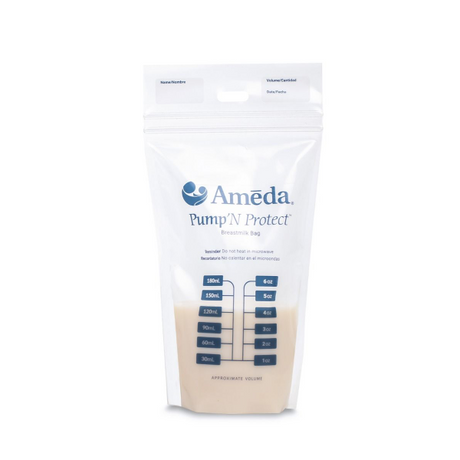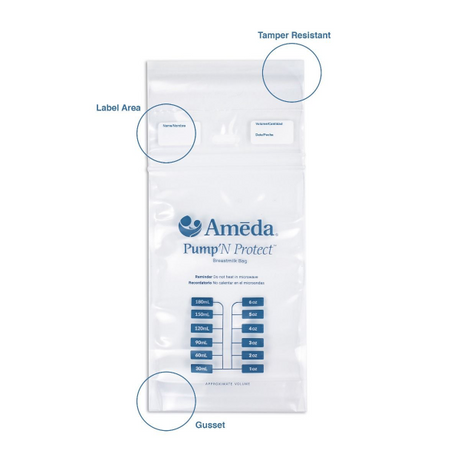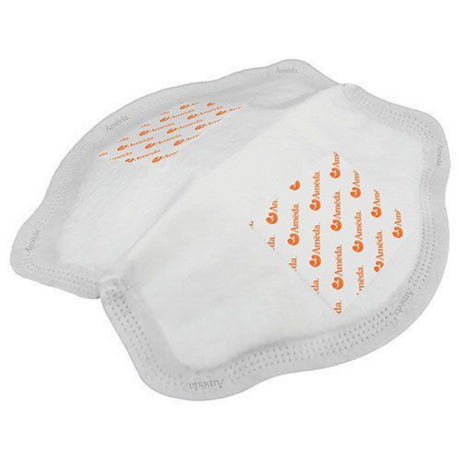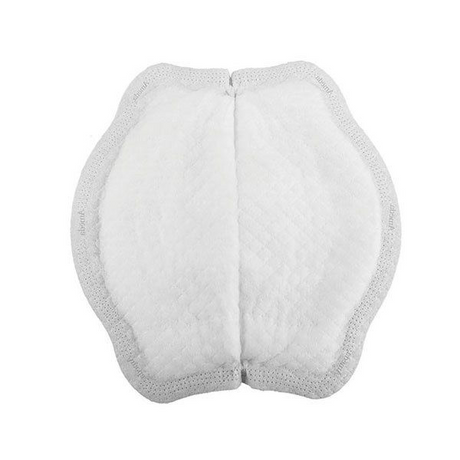Published:
A Partner's Guide to Baby Feeding
Dads and partners have a role in breastfeeding, too. The first few months after birth can be both exciting and overwhelming, and new families need lots of support.
Supporting Your Baby’s Mom
There are a lot of tips for new fathers/partners to keep in mind as their family grows.
- Arrange for help. In some cultures, the early weeks are seen as special. Mothers are kept apart from others so they can focus on the baby. All chores are done for them. After this time, the mother receives public praise for a job well done. In these cultures, fewer moms get the “baby blues.” The more you can help out during the first few months, the better.
- Learn about breastfeeding and pumping. It’s easy to support your partner when you believe in what she’s doing. Attend a prenatal breastfeeding course. Educate yourself on the benefits of breast milk and the risks of not feeding breast milk.
- Watch and learn. Your partner will need help in learning to breastfeed and pump. Learn from the people who help her. Ask questions.
- Talk to other fathers. Listen to their experiences with breastfeeding. It’s also helpful to share your thoughts and feelings—you need support, too!
- Limit visitors. Include those who are supportive and helpful. This is the time for you and your partner to learn how to care for your baby. Keep visits short or ask visitors to help clean and cook while you tend to your baby and get some rest.
- Get help. There are many support people available for hire that can help you with household chores and/or basic breastfeeding support in your home.
- Know who to call with breastfeeding and pumping questions. Find out if your hospital has a breastfeeding help line or support group. There may be mom-to-mom support groups available locally (lalecheleague.org or www.breastfeedingusa.org), or, find a local expert such as a lactation consultant (www.ilca.org).
Getting Close with Your Baby
Babies love to be touched. You can get close in many ways other than feeding.
- Spend time with your baby. Put baby on your bare chest. Babies love to feel your skin against theirs. Give a massage.
- Give your baby a bath. This can be a fun time for both of you!
- Bring your baby to your partner for feedings. This includes during the day and at night.
- Feed your baby. If your baby was born preterm, with special needs, or if your partner decides to exclusively pump, bond with your baby by giving a bottle.
- Cuddle and walk. Movement can help during fussy times; it calms babies.
- Talk and sing to your baby. This is how babies learn to talk.
- Change your baby’s diaper. Another benefit of breastfeeding: when your baby is fully breastfed, diapers don’t smell bad!
- Hold your baby. Give your partner time to take a shower or eat a meal.
- Play with your baby. Moms and dads play in their own ways. This is how babies learn, and it can be fun for both of you.
Helping Your Partner Breastfeed and Pump
There are many ways you can support your partner with breastfeeding and pumping.
- Learn your baby’s hunger cues. Early hunger cues include: sucking sounds, moving around, tongue and hand-to-mouth movements. If you see these, bring your baby to your partner to breastfeed or bottle-feed the baby while she pumps.
- Help her get comfortable. If she’s feeding from the breast, be sure she has enough pillows to support the baby, her arms, and her back. For some positions, she may need your extra hands to get the baby just right. Remind her to take a deep breath and relax her shoulders and body once the baby is latched.
- Help her stay hydrated and nourished. Bring her a drink and healthy snack while she is breastfeeding or pumping.
- Help after a feeding. Offer to burp and change your baby’s diaper.
- Encourage her to nap at least once a day. Producing breast milk is hard work and sleep is a necessary ingredient. A little extra sleep can make a big difference!
- Praise her. Tell her you are proud of her and that she is a wonderful mother.
Breastfeeding and Sex
After your baby is born, your partner will need time for her body to recover. Once she has had her six-week postpartum check-up, she may be physically and emotionally ready to start having sex again. It is important for you to discuss your feelings and readiness with each other. Remember:
- Some mothers may have less desire for sex due to fear of pain or pregnancy, because they’re overwhelmed by physical demands of breastfeeding or pumping, or simply because they’re tired.
- Many mothers have vaginal dryness due to hormone changes while breastfeeding. Using a lubricant can make sex more enjoyable and less painful during this time.
- During sex, your partner may have an orgasm that causes the hormone oxytocin to be released, which is the same hormone that causes milk to be released from the breasts. So, you may get a little wet! This will happen less if your partner breastfeeds before having sex.
It’s important to note that your partner can get pregnant even if she is breastfeeding. Use birth control if you want to decrease your chances of pregnancy. Talk to your health care provider for more information.
The Active Role You Play Most importantly, enjoy your new role by actively participating in baby care and parenting. When moms and dad/partners work together to care for their baby, you will both feel supported and satisfied.
This is general information and does not replace the advice of your healthcare provider. If you have a problem you cannot solve quickly, seek help right away. Every baby is different. If in doubt, contact your physician or healthcare provider.


